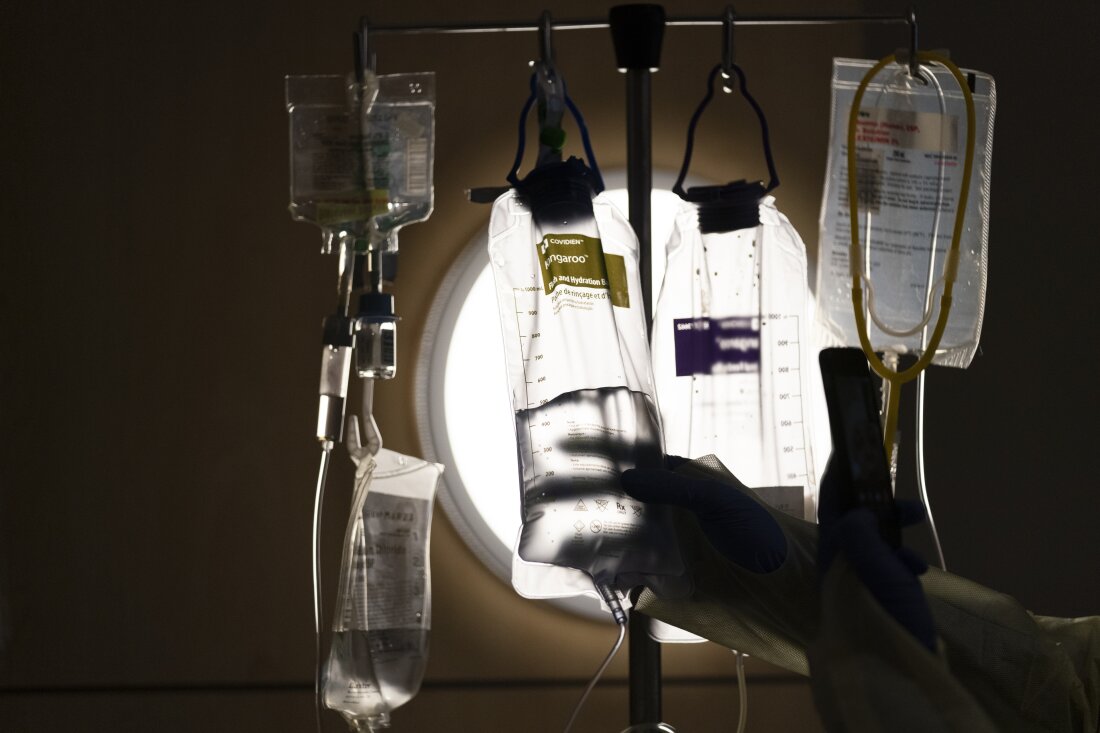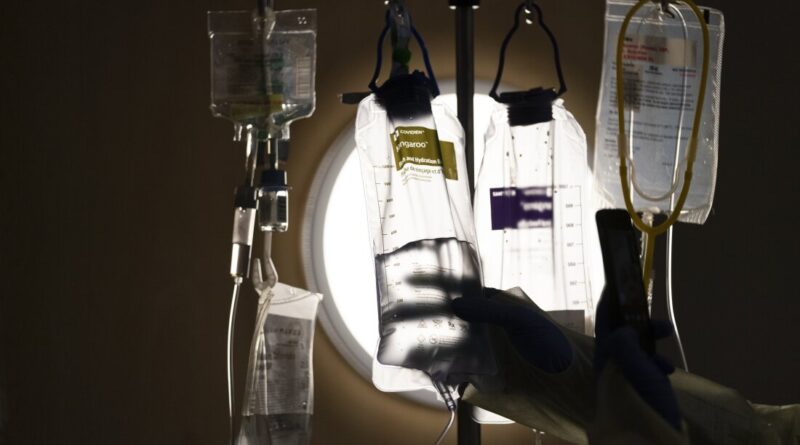Lack of IV fluids leads to canceled surgery

The shortage of IV fluids has led to the postponement and cancellation of surgeries at hospitals across the country.
Jae C. Hong/AP/AP
hide description
toggle caption
Jae C. Hong/AP/AP
Surgery was Katie Adase’s best chance to finally get a diagnosis of the chronic pelvic pain that has plagued her for years.
“I couldn’t do laundry or go to the grocery store or cook without spending three or four hours in bed using a heater,” says the 26-year-old biologist. things. “It was very scary.”
But in October, a few days before his surgery, the nurse called. The surgery was over because there wasn’t enough IV fluid to continue.
“I was having a hard time processing what he was telling me, so I was quiet,” he says, explaining that the process was on his mind because many other doctors they were tired of trying to find out. what was the fault of him.
His review would have to wait.
Canceled surgeries have been a problem for patients around the country in the wake of Hurricane Helene. The storm filled the Baxter International factory in North Carolina which accounted for 60% of the country’s supply of IV fluids, which are routinely used during many surgeries and procedures.
Storing IV bags
Without Baxter’s facility to make IV fluids, hospitals won’t be able to order as many as they used to, depending on the company.
So hospitals had to reserve their supplies for the most needy patients. Sometimes, that means telling emergency room patients to drink Gatorade or Pedialyte instead of getting an IV. But it also means canceling some operations.
He says: “This shortage still affects almost every hospital in this country Dr. Chris DeRienzo, chief physician officer of the American Hospital Association. “Now I’ve talked to hospitals coast to coast, border to border across the country that need to take those steps.”
Surgeries that may be postponed or canceled include certain bladder surgeries, which require a lot of IV fluids, heart surgery, orthopedic surgery and things like Katie Adase’s diagnostic surgery.
But it varies from hospital to hospital.
Nancy Foster, AHA vice president for quality and patient safetyit says that all hospitals deal with it differently, but it causes stress no matter what it is.
“This, for many hospitals, comes after some supply shortages. And of course, we’re still in this phase of emotional recovery from COVID,” he says. “It’s still – there are many people who feel tired [the Baxter situation] added to that with this new deficit that no one expected.”
And the pressure is even worse as the end of the year approaches, says DeRienzo. People get sick with winter respiratory viruses, and schedule more surgeries because their health plans often start in January with new premiums.
Crisis situation
At Massachusetts General Hospital in Boston, Dr. Paul Biddinger worked on emergency planning for more than two decades as a senior planning and development officer.
He says the lack of IV fluids is a disaster.
“We put our emergency response plan in place for the system,” says Biddinger. “And we’ve been in that situation for weeks now…, and it’s hands down. It’s the same thing we do for a hurricane or the Boston Marathon bombing or COVID. ”
Biddinger Hospital was able to reduce IV fluid use by 50%, but it took a lot of effort. And the trend continues.
When knee or hip surgery is canceled, sometimes the patient has been waiting for months, and advocacy can take time.
“And so they’re in pain, their risk of falling there,” Biddinger says. “There are real consequences for patients and their families.”
Improving supply
Things are getting better with Baxter and the federal government work to close the supply gap while the North Carolina plant is being cleared for a phased reopening.
Management is invoking the Defense Production Act to help Baxter is getting the tools he needs to reopen. The Preparedness and Response System and the Federal Emergency Management Agency have also sent crews to rebuild a collapsed bridge at the facility, and the Food and Drug Administration has authorized the temporary importation of 19 different IV products from around the world. what is wide at that time.
Meanwhile, Baxter says he hopes so restart production of high-dose IV fluids at the facility this week and it is premature.
But it will take time for that supply to reach the hospital docks. And the Baxter facility won’t be back to full capacity until at least next year.
However, some NPR patients have spoken to say that their canceled surgeries have now been rescheduled and have taken place without incident.
As for West Virginia’s Katie Adase, her surgery was pushed back to Nov. 1. She says she’s lucky to have the support system she has, but patients pay the price even if things work out in the end.
“So that leaves me to sort out all my equipment. So, I’m racking up medical debt. I’m racking up travel bills. I feel guilty that, you know, my husband is he quit his job for free.”
#Lack #fluids #leads #canceled #surgery
